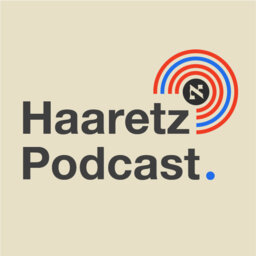'If One of Those Missiles Hit Tel Aviv We Would Be in a Very Different, Devastating Situation'
Iran's firing of hundreds of drones and missiles at Israel on Saturday night marked a new escalation in a simmering war usually fought by proxies miles from Tehran. Iran's strike, which was largely intercepted by Israel and its allies, leaves lingering questions of global significance.
On a special edition of the podcast, Haaretz reporter Linda Dayan speaks to Haaretz Editor-in-Chief Aluf Benn, who explains how this unprecedented attack came to be – and what might follow. Although this particular barrage failed to inflict mass casualties, in its aftermath, "Israeli decision-makers" must now think "not twice, but ten times, about the consequences" of striking Iranian targets or their proxies in the future. "After October 7, I think we all need to be very skeptical of premediated military outcomes, both for Israel and for Hamas as well."
If you want to fight Iran, Benn says, "you need the early warning capabilities, if not the defensive capabilities, of your allies in the region and first and foremost the United States." But the same alliances that helped Israel are absent for Hamas. Iran's actions "shows Hamas that, at this stage at least, they're still friendless. Nobody is going to come help them," Benn says. "They did not say once that if Israel would be willing to stop the fire in Gaza… they would not retaliate."
As Israelis are worrying about a new front to this war, so, it seems, are Iranians. Arash Azizi contributing writer at The Atlantic and author of "What Iranians Want: Women, Life, Freedom," explains how average Iranians are responding to the threat. "Average Iranians have a lot of problems – economic, the repression they face from the government," he says. "The last thing they can afford is to enter a war with Israel, a country for which there is very little hostility amongst the Iranian public."
"Iranians don't have that hostility to Israel that I think you do have in other Arab countries – it's just not the same thing for us." The warmongers and champions of the regime's aggression toward the Jewish State are a small minority, he says.
The very day of Iran's launches at Israel, the regime ramped up its persecution of women who do not cover their hair, Azizi notes. "The regime will use whatever this conflict is going to be to repress critique," he says, but at the same time, "it's a new vista for the Iranian opposition to oppose the war – and also to oppose this regime that has brought nothing good for Iranians, and has threatened our country with a war that none of us want."
 Haaretz Podcast
Haaretz Podcast


